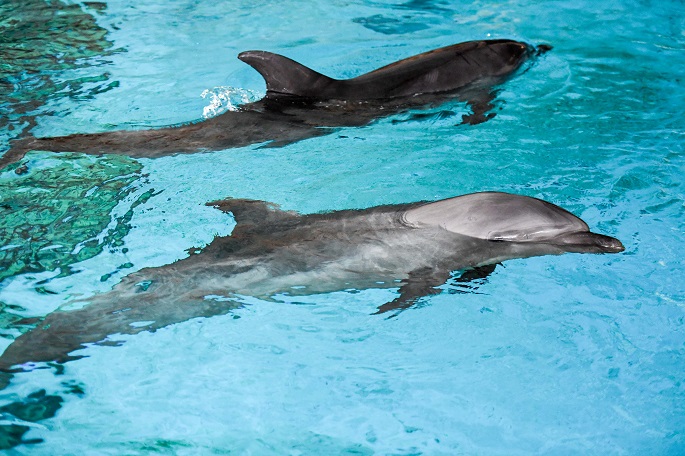Dolphins give each other "names" to recognize friends: study
Published : 08 Jun 2018, 10:59
Updated : 08 Jun 2018, 11:02
Dolphins may be more similar to humans than previously thought, with a University of Western Australia (UWA)-led study on Friday confirming that the ocean creatures use individual "names" to identify their friends and rivals among social networks.
According to the study's lead author Dr Stephanie King of the UWA Center for Evolutionary Biology, no other non-human animal has ever been found to do this, even when forming long-term cooperative partnerships.
"When two groups meet each other they'll exchange their signature whistles so that they know who's present," she told Xinhua.
"They sometimes copy the signature whistle of another animal when they're not around but we don't know what that means yet."
Conducted in Shark Bay, Western Australia, researchers collected recordings of 17 male bottlenose Dolphins, which are known for their formations of alliances.
From a small research vessel, the scientists observed the dolphins and used underwater microphones to record them.
After collecting the recordings, the team were able to determine the "names" or individual vocal label of each male.
While some animals such as parrots, bats, elephants and primates are also known to make vocal calls, they are very similar to one another.
Dolphins however are able to retain unique signature whistles.
"Retaining individual names is more important than sharing calls as it allows dolphins to negotiate a complex social network of cooperative relationships," King explained.
"The names help males keep track of their many different relationships; who their friends are, who are their friends' friends, and who are their competitors."
King said the next step will be to study the males' relationships more closely, in order to develop a further understanding of the political landscape of dolphin alliances in Shark Bay.


